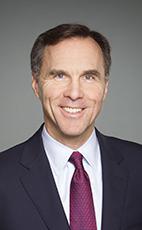Mr. Speaker, we are starting with a deficit we inherited from the Conservatives. Furthermore, we have an additional $150 billion in debt. That is what we are starting with, but fortunately, we are in a position to invest in our economy because, as a result of the measures taken by the government in the 1990s, our debt-to-GDP ratio is the lowest in the G7. We will invest and this ratio will grow at a lower rate than in the past 10 years.

